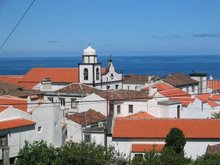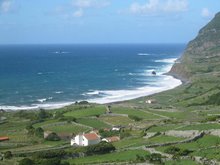I must say that the question which is exercising me the most in the run up to the wedding is not what her dress is going to be like (couldn't give a toss) but which royal dukedom will be conferred on Prince William.
The odds being offered on the various options by one firm of bookmakers are as follows:-
4/7 - Duke of Cambridge
7/2 - Duke of Monmouth
4/1 - Duke of Clarence
9/2 - Duke of Sussex
12/1 - Duke of Kendal
14/1 - Duke of Windsor
Let's analyse these in turn:-
Cambridge - Several short lived infant sons of James Stuart, Duke of York (as in "Grand Old ...") who later became King James II (1685-88) were styled Duke of Cambridge but the last adult dukes were Prince Adolphus, the 7th son of King George III (as in "The Madness of ..."), and his (Adolphus') son, Prince George (pictured below) who died without male heirs in 1904.
Monmouth - Do me a favour! The last (and so far only) Duke of Monmouth was executed for high treason in 1685! He was the illegitimate son of King Charles II (1649-85). After his father's death without legitimate children, Monmouth, a Protestant, led a rebellion to prevent the accession of the late king's brother, the Catholic Duke of York as James II. He figured a Protestant bastard would be more acceptable to the populace than the legitimate Catholic heir but figured wrong and got his head chopped off for his pains. Not a very auspicious precedent for Prince William.
Clarence - This has some potential in precedent (important to the royal family) because the last Duke of Clarence was the last royal duke to be in the same position as Prince William - i.e. the grandson who is the eldest son of the eldest son of the current monarch.
He was Prince Albert, the eldest son of Edward, Prince of Wales, the eldest son of Queen Victoria who became King Edward VII (1901-1910). The problem is Prince Albert died in 1892, aged 28, while his grandmother was still on the throne. So this may not be considered a good omen for Prince William (aged 29). The Duke of Clarence was also the one thought to be Jack the Ripper so perhaps best avoided.
Sussex - the last (and only) Duke of Sussex was Prince Augustus, the 6th son of King George III. He died in 1843 without heirs but a nice portrait:-
Connaught - Having a laugh? This title was conferred on Queen Victoria's third son, Prince Arthur, in 1874 but Connaught is in the part of Ireland which seceeded from the United Kingdom in 1922. Although we now recognise that as the Republic of Ireland, it's about as likely as creating Prince William the Duke of Zimbabwe. Tchoh!
Kendal - Not sure where this has come from. Never heard of a Duke of Kendal before. According to Wikipedia: "The titles of Earl of Kendal and Duke of Kendal have been created several times, usually for people with some connection to the royal family." It's a small town in the Lake District best known for Mint Cake, isn't it? No, No, Kendal won't do at all.
Windsor - This was the title created for King Edward VIII after he abdicated in 1936 to marry a divorcee. An American divorcee to boot. A most inauspicious precedent so a complete no-hoper for William.
What we're looking for is the dukedom borne by the last eldest son of an eldest son of a reigning monarch who went on to become monarch himself. And I just don't think it's ever happened before. King Edward VIII (vide supra) was the eldest son of the eldest son of King Edward VII but he was only 16 and unmarried and still styled Prince Edward of Wales when his father became King George V and he was catapulted straight to being Prince of Wales.
So what they need is a new title of appropriate woody-ness, grandeur and seniority. I would suggest Duke of London. If his father is Prince of Wales and his grandfather (the sovereign's husband) the Duke of Edinburgh, then why can't the next most senior member of the royal family be the duke of the capital? Or if you don't like that, what about Duke of Belfast? (As he's going to be King Billy one day, they might as well start getting the Irish used to it now.)
Of course, we could think the unthinkable and not give William any title at all. Indeed, there are rumours he's asked not to be created a duke and remain as plain Prince William of Wales. But there's a problem with that in that Waity-Katie would not become Princess Catherine but Princess William.
This is because one can only be born a princess, not become one by marriage. The wife of a prince is Princess Husband's Name (as in Princess Michael of Kent). That is unless the sovereign creates you Princess Your Own Name as the queen did for Princess Alice, wife of the Duke of Gloucester (third son of King George V) in recognition of her lifetime of public service. But if W-K were to be created Princess Catherine, then Princess Michael of Kent would want to be called Princess whatever her actual name is and who knows where all that would end ... (And before anyone mentions it, she wasn't Princess Diana, she was Diana, Princess of Wales which is totally different.)
Oh well, we'll find out on Friday morning. See you on the balcony at Buck House afterwards.




















